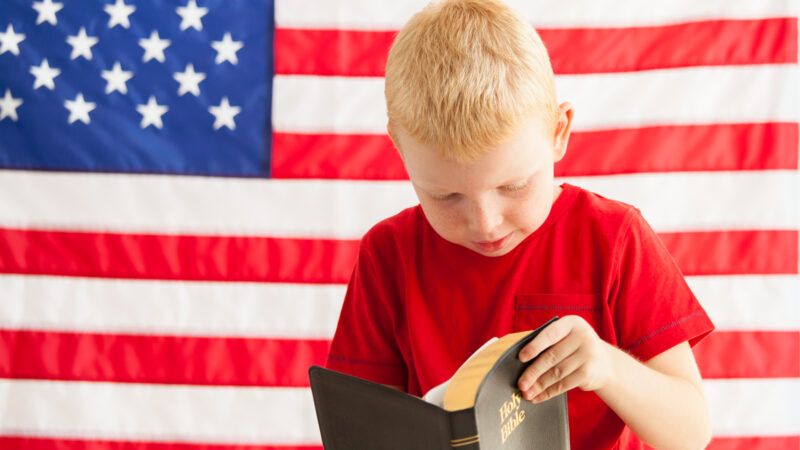Oklahoma To Require Public Schools To Teach the Bible
"Every teacher, every classroom in the state will have a Bible in the classroom and will be teaching from the Bible in the classroom," state Superintendent Ryan Walters announced last week.

Last week, Oklahoma state Superintendent Ryan Walters announced that the state could soon require public schools to teach the Bible and the Ten Commandments, including requiring religious text be included in all classrooms.
"Every teacher, every classroom in the state will have a Bible in the classroom and will be teaching from the Bible in the classroom," Walters said last Thursday, "to ensure that this historical understanding is there for every student in the state of Oklahoma."
The statement came just days after the Oklahoma Supreme Court ruled that the state could not approve a religious charter school.
"Effective immediately, all Oklahoma schools are required to incorporate the Bible, which includes the Ten Commandments, as an instructional support into the curriculum," reads Walters' memo. "The Bible is one of the most historically significant books and a cornerstone of Western civilization, along with the Ten Commandments. They will be referenced as an appropriate study of history, civilization, ethics, comparative religion, or the like, as well as for their substantial influence on our nation's founders and the foundational principles of our Constitution."
It's not exactly clear how this memo will affect school curriculums. Most public schools already reference the Bible—and other religious texts—where appropriate as part of instruction on world religions, world history, or other classes. However, Walters' memo did leave open the possibility that Oklahoma's Education Department would develop curricula giving schools specific instructions for how to teach from or about the Bible.
Walters provided some context to his remarks on Monday, telling PBS News that the memo was motivated by the perception that teachers "are not talking about in their classroom the role that the Bible played in American history" and that he would soon "be offering additional guidance to districts that they will have to comply with."
The current lack of clarity makes it difficult to conclusively say whether Walters' memo is unconstitutional. It's been well established that public schools can use religious texts in some contexts, like a comparative religions course or to provide context for a piece of literature.
However, Walters' directive is at "the edge of the envelope," Andrew C. Spiropoulos, a constitutional law professor at the Oklahoma City University School of Law, told The New York Times. "By singling it out as a proposal standing alone, that could be legally problematic."
Walters, on the other hand, is confident that his directive will pass legal muster.
"If we get sued and we get challenged, we will be victorious, because the Supreme Court justices [Donald Trump] appointed actually are originalists that look at the Constitution and not what some left-wing professor said about the Constitution," he told PBS News. "The separation of church and state appears nowhere in the Declaration of Independence or Constitution."


Show Comments (178)